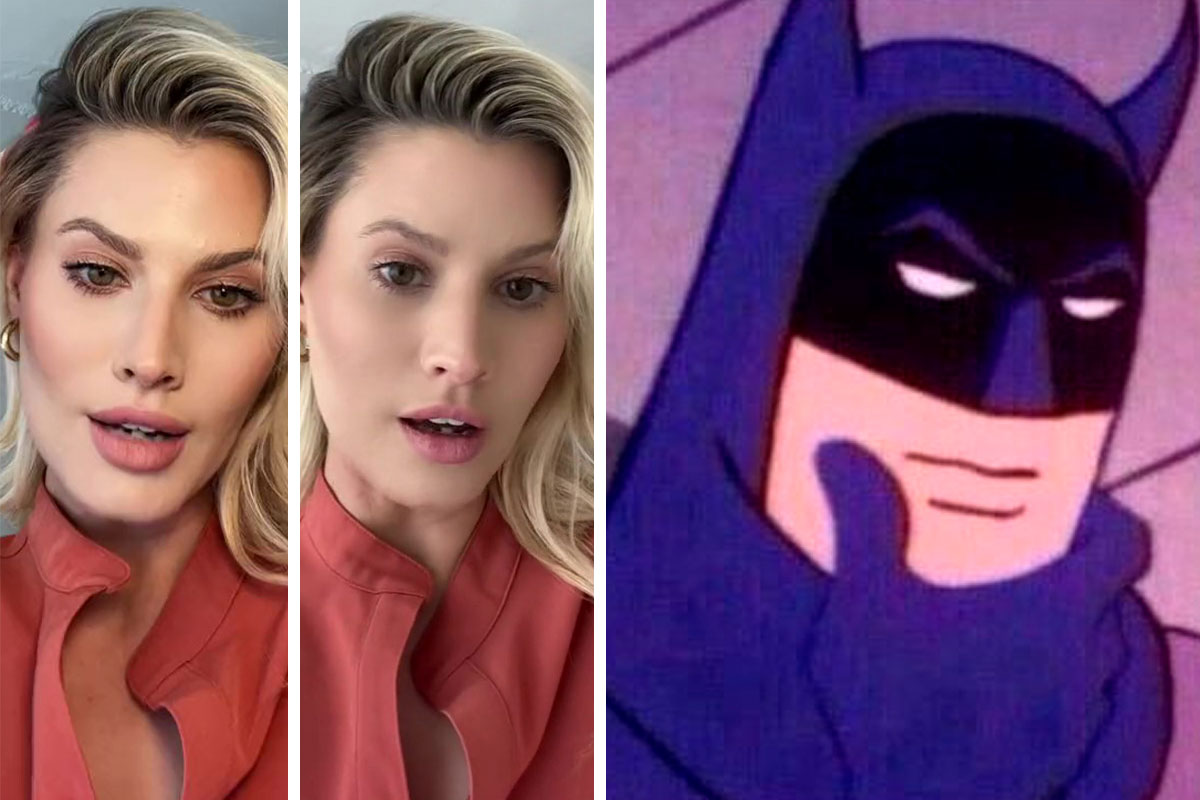
Woman Goes Viral By Removing One Filter At A Time to Demonstrate How Fake Social Media Is
Interview With AuthorEvery one of us has heard at least once that social media is fake; however we still try to appear and show our best selves there, even if it’s not really us. Filters that change faces, colors, and hide all our imperfections are getting more and more advanced, to the point that sometimes you can’t even tell if a person is using them. However, I think it’s obvious that these filters also put a lot of pressure on us and unrealistic beauty expectations when we see people online looking literally perfect; clear skin, perfect body, but we don’t realize that nobody looks like this in real life 24/7.
More info: TikTok
Filters can not only impact our low self-esteem but also put the pressure of unrealistic beauty expectations on us
Image credits: @missmimiwebb
Woman shows online how filters can change the way that you look by ‘defiltering’ herself one filter at a time
Image credits: @missmimiwebb
“I’m gonna blow your mind”
The creator of this video is Miranda ‘Mimi’ Webb, who is an injector and nurse. She is active on social media educating people about Botox procedures, showing results and her work. However, her video where she decided to use her platform to expose the fakeness of social media filters went viral. The video received more than 11M views and almost 670K likes.
In the beginning, she used one of the most popular filters called ‘Bold Glamour.’ Forbes states that this filter was created using artificial intelligence; thus, that’s the reason why it looks so real. The filter assesses your face and completely remolds it so you can look like you’ve had a cosmetic makeover, along with some plastic surgeries. Of course, after you remove it, you may want to always look like this, but let me tell you – you are beautiful just the way you are.
Despite Mimi looking absolutely gorgeous without any filters, you can still see how her face changes with every filter being removed. People in the comment section didn’t spare compliments for proving that social media is fake. “I love this!!! Wish everyone was as honest as you,” one user wrote.
“The reason this made me feel good is because you are gorgeous naturally and it’s a reminder that we don’t focus on each other’s flaws, just our own,” another added. Moreover, folks discussed that this is the reason they don’t let their daughters on social media, as the comparison to filtered people won’t do any good to their self esteem at a young age.
Image credits: @missmimiwebb
Moreover, Miranda Webb was kind enough to share her insights behind the inspiration of this video with Bored Panda, its influence on people’s perceptions of themselves and advice for others who may be struggling with the idea of presenting their unfiltered selves on social media.
“As an injector I make it a mission to promote the enhancement of natural beauty, embracing facial uniqueness and respecting everyone’s individual anatomy,” she shares. “I get a lot of hate on social media for just being an injector, although I have been blessed with a career where I can actually make a positive difference in the lives of my patients.”
She adds that she loves to use filters as they are fun and playful, though it happens way too often that she gets shown filtered photos of patients during consults and she has to remind them every day that these are just filters and you aren’t supposed to look like that in real life.
So all of this added to the inspiration behind the creation of this viral video. “I had a horrible full face and body allergic reaction and I thought, you know what, let me put this on TikTok, who cares? Everyone struggles with acne, skin pigment, features they don’t love and yet we all hide behind filters that take away all of that and allow us to display something on social media that simply does not exist in real life.”
Miranda emphasizes that she just wanted to be honest about what filters, makeup and lighting could cover up and what things really look like in real life. “It took me 30 seconds to make that video and I had no idea how viral it would go or that it would get such a positive response, especially because I’ve gotten so used to people being so mean on social media!”
She starts by showing how she looks with the ‘Bold Glamour’ filter and ring light, finishing with how she looks in everyday life
Image credits: @missmimiwebb
“I hope people know it’s literally fine to not look perfect every day,” she says. “Or ever.” Glass skin trends, girly aesthetic trends, and the one calorie a day, plant-based, slim trend are all phony and unsustainable. You might be able to portray yourself as ideal on social media for 3 to 5 minutes, but nobody ever feels attractive, meaningful, or seductive all the time. and that’s fine! Miranda highlights that it’s part of being human to make mistakes and occasionally feel terrible! By merely demonstrating something genuine, even for a brief period, I hope to have helped others release some of that burden.
Finally, speaking about advice to others who may be struggling with the idea of presenting their unfiltered selves on social media due to societal pressures or self-esteem concerns first, she says that no one needs to show themselves on social media at all. “I think if you want to, then great, but some people feel the pressure to legitimize their lives by portraying themselves often and you just don’t have to do that if you don’t want to.”
Moreover, Miranda highlights that no one needs to be on social media at all. “My advice to people who are and want to be is to just be authentic – talk openly about what you’re struggling with and turn your own insecurity into a vehicle to empower others to feel OK and comfortable having the same insecurity too. I try to do this with my acne – I talk about it all the time because it annoys me so much but my followers are grateful that I share openly about it.”
And of course, don’t forget to check her Instagram and TikTok accounts!
Image credits: @missmimiwebb
Bored Panda got in touch with Dr. Pamela Rutledge, who is a media psychologist and she kindly agreed to share her professional insights regarding idealized images, the psychological pressure for social validation, and how to deal with it all across one’s lifespan.
“Ironically, while many of the videos show alterations which are ostensibly intended to improve appearance, at least half of the videos I scanned felt more like fishing for compliments than serious disclosures,” she starts. The majority of the women were already skinny, had their hair and makeup done, and were posing for the camera in adorable clothes. However, if the objective is to normalize normalness and true beauty, these are not likely to be useful.
But the positive side Dr. Pamela shares is that the continuous use of artificial filters and other methods to highlight social media fakeness does improve awareness and, hopefully, encourages critical thinking as opposed to the immediate emotional response of social comparison.
Moreover, she emphasizes that the desire to be admired and valued is a very human experience. “Social comparison helps us navigate our social world, identify behavioral norms, find our roles, and be inspired to take on new ones. In our hunter-gatherer days, social comparison was a means of survival.”
You can check out the whole video below:
@missmimiwebb #greenscreenvideo ♬ original sound – Mimi
However, Dr. Pamela says that our brains’ wiring is terribly outdated in the modern world when it comes to managing virtual social places like social media. Our brains easily mistake likes for genuine liking and friending as having real friends. Without our deliberate cognitive focus, our responses to virtual events will have a significant impact on our decisions. This can be particularly difficult for young people to handle.
So “while social media can be very positive, providing social connections and support, it can also be destructive if someone relies on social media and external validation as the basis for their self-esteem, and feels the pressure to emulate ideals that aren’t achievable.”
And finally, there are several ways to create healthy social media behaviors. It’s important to increase awareness of how using social media makes you feel. Identify what activities are positive and which ones make you feel bad. Block annoying accounts, set a timer if you feel you are wasting too much time. “Does some social media use make you feel worse about yourself? Why? Is it time to step away?“
So, guys, Dr. Pamela states that it’s important to focus on self-esteem-building activities. It’s not built based on what others think of us. It’s a product of our evaluation of our abilities and worth internally. And no amount of likes will ever be able to do that.
Online users are thanking the woman for content like this and her honesty
Not to be harsh, but ANYONE that believes EVERYTHING on social media is the truth needs to get their head examined.
Children often do, and it can utterly destroy their self-esteem. There's a commercial on my streaming, showing "Mary" at 12, getting a phone, intermittently for the next few years, and in recovery at 19 from anorexia. I don't know if the people in the commercial are really Mary, or just actors, but I've no doubt the situation is real.
Load More Replies...Wow, who'd have thought it? Make up and lighting can make you look better on camera than IRL. I'm shocked, why would anyone do this?
Better? In the first photo she just looks like a clone of any "influencer"/"celebrity"...
Load More Replies...Not to be harsh, but ANYONE that believes EVERYTHING on social media is the truth needs to get their head examined.
Children often do, and it can utterly destroy their self-esteem. There's a commercial on my streaming, showing "Mary" at 12, getting a phone, intermittently for the next few years, and in recovery at 19 from anorexia. I don't know if the people in the commercial are really Mary, or just actors, but I've no doubt the situation is real.
Load More Replies...Wow, who'd have thought it? Make up and lighting can make you look better on camera than IRL. I'm shocked, why would anyone do this?
Better? In the first photo she just looks like a clone of any "influencer"/"celebrity"...
Load More Replies...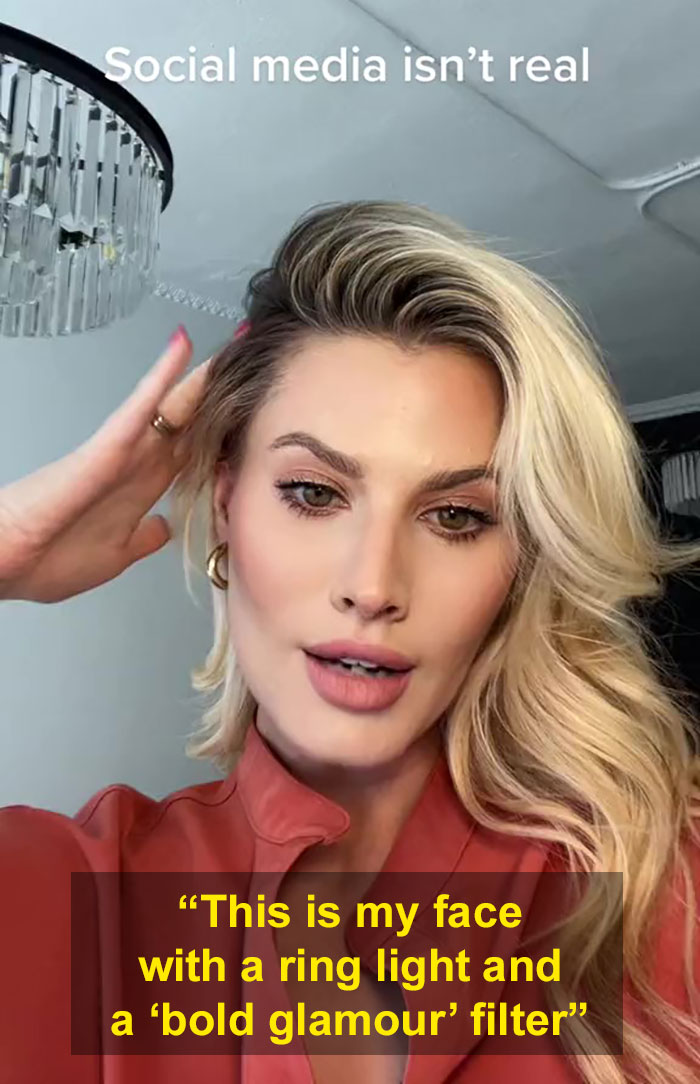
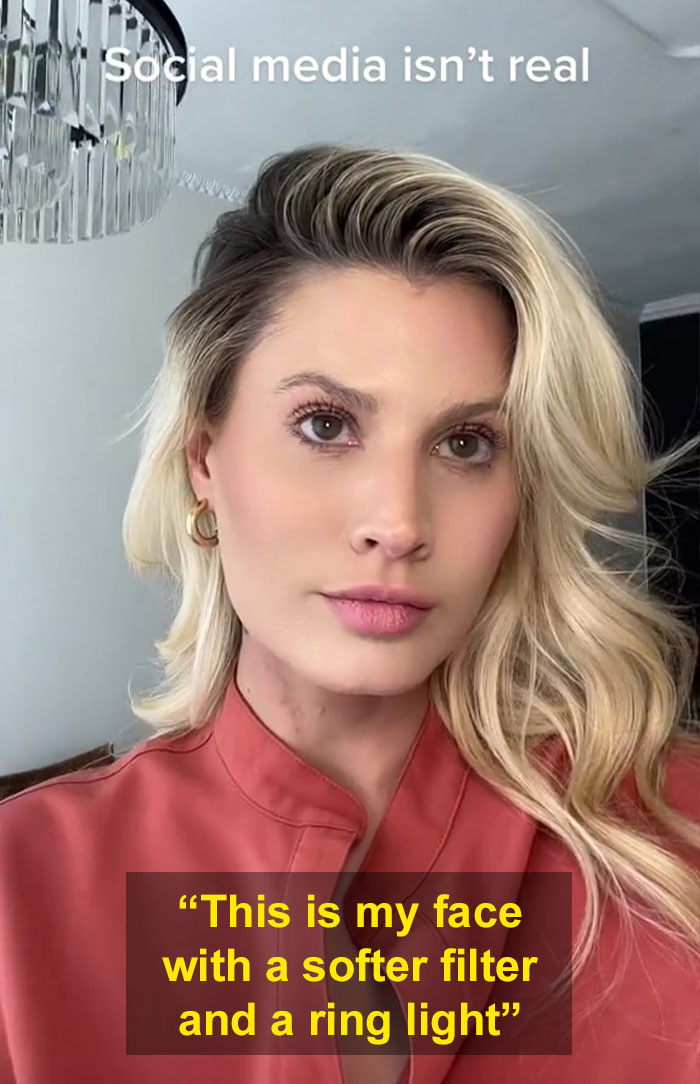
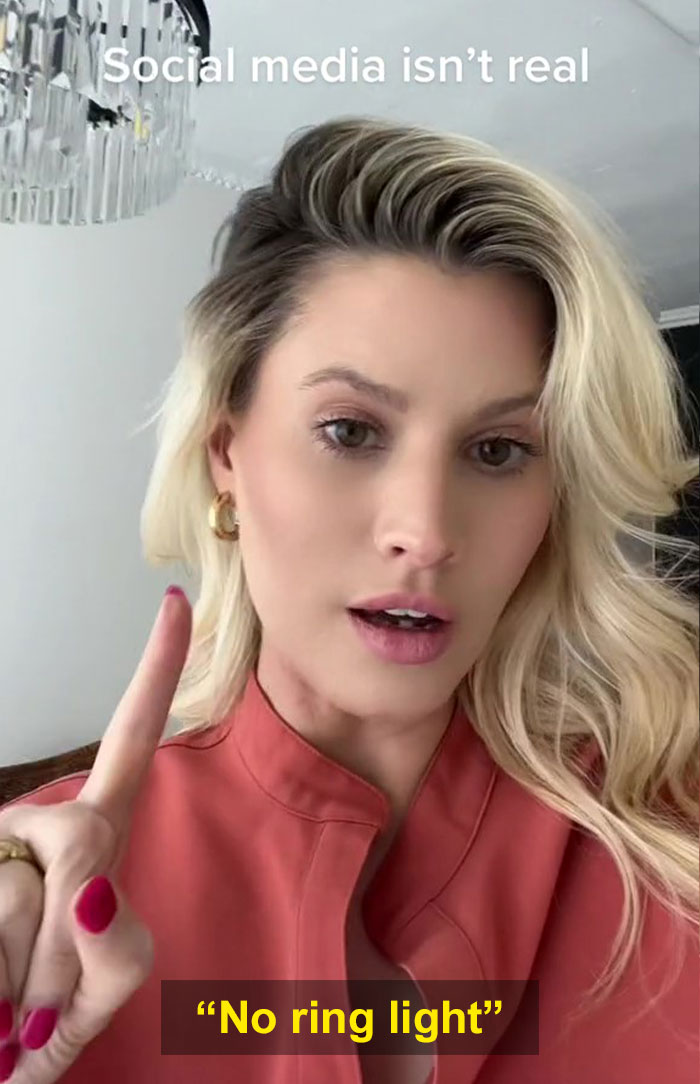
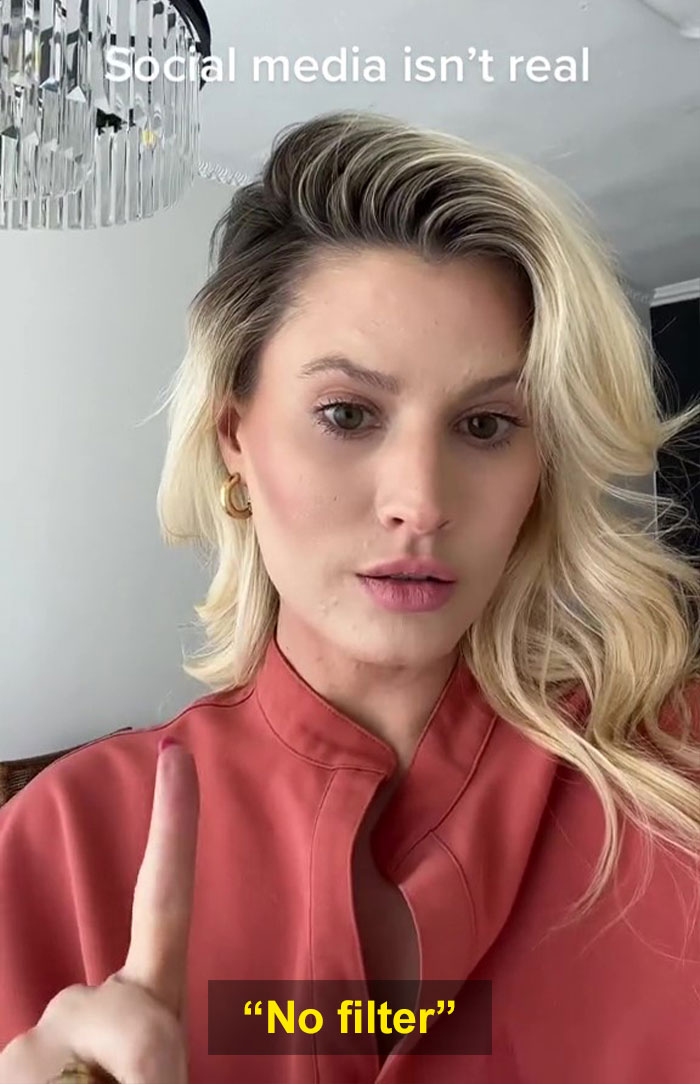
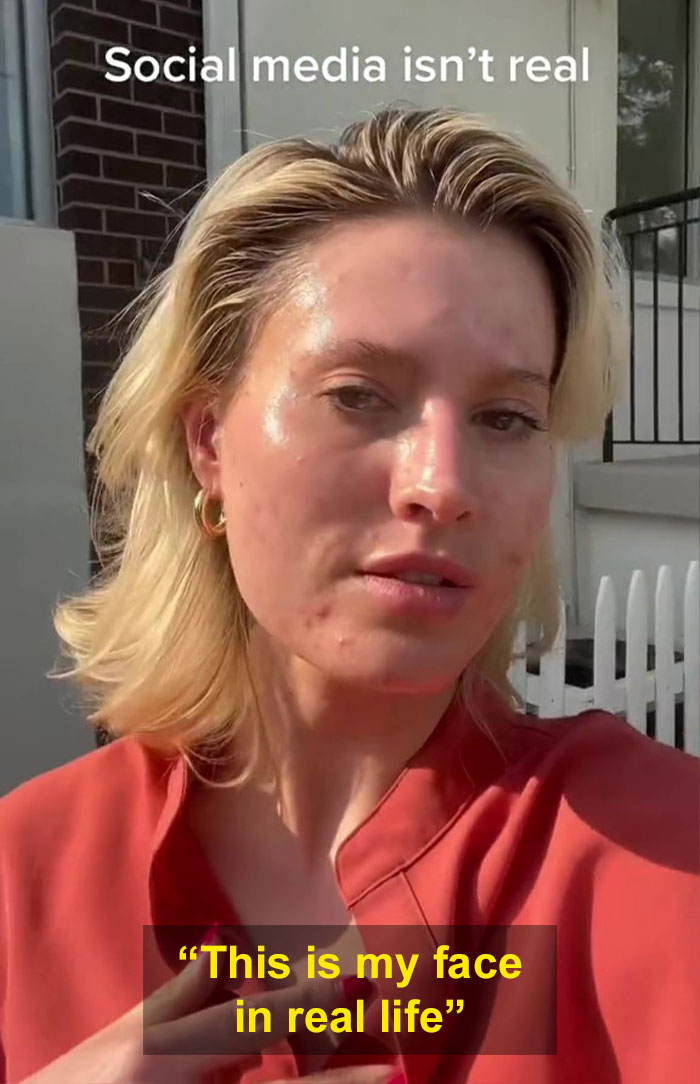



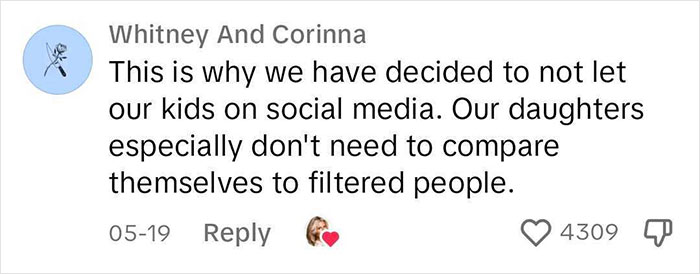





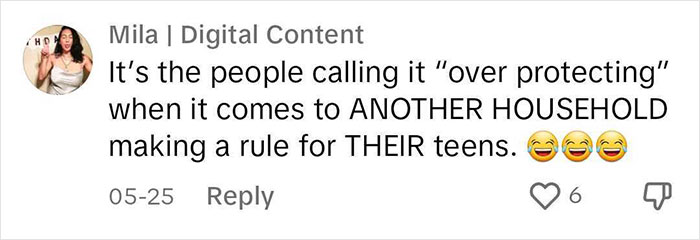
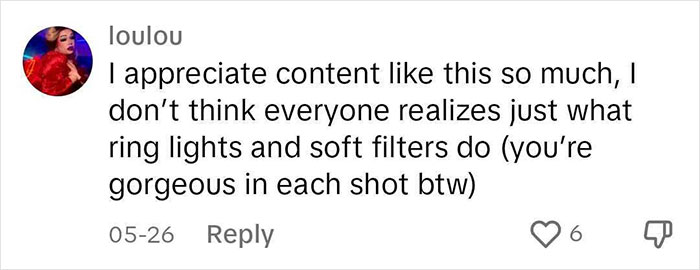



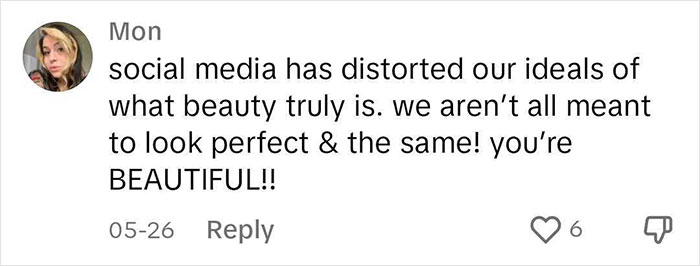















147
46